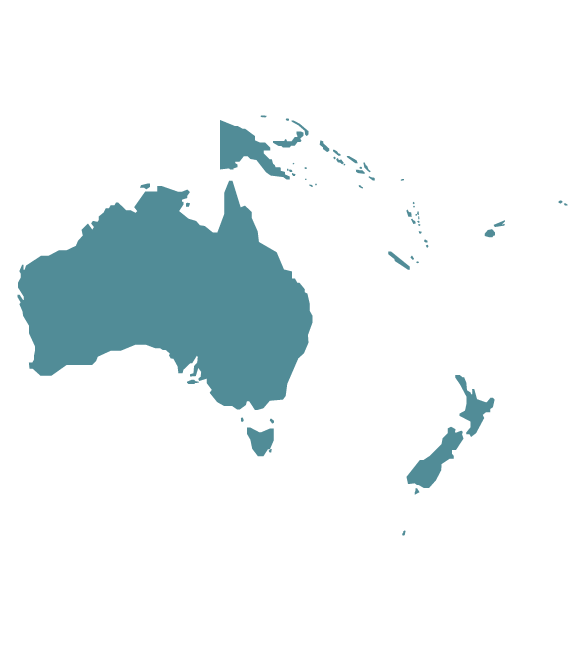Our
projects
Projects on this page are divided into two categories: GGGI Signature Projects and GGGI Small Grants.
GGGI Signature Projects are collaborative projects that have been designed by and funded through the GGGI involving several GGGI members and other partners contributing to large-scale and often multi-phase projects.
GGGI Small Grants are projects are funded through the GGGI Small Grants Program, which is a competitive bid-based program open to GGGI members only, pending available funding. GGGI Small grants typically involve one or more GGGI members working on specific projects in select geographies.
GGGI projects by region - select a region and then click “explore” to see projects from each region
All Projects
Search by Category
- Africa 4
- Asia 6
- Capacity Building Workshops 12
- Central and South America 1
- Data Collection 14
- EOL Gear Collection/Recycling 14
- Europe 5
- Fisher Interviews 9
- Gear Removal 25
- North America 14
- Oceania 2
- Outreach and Education 23
- Predictive Models 5
- Side Scan Sonar Surveys 5
- Technology Testing 8
- UAV Surveys 4
GGGI Small Grant (2022) - Patuakhali Science and Technology University (Bangladesh)
The Southern coastal districts of Bangladesh, especially Patuakahli and Cox’s Bazar district, are home to the largest catch of hilsa and shrimp from the Bay of Bengal, with most fishers in the region predominantly artisanal gillnet and seine net fishers. In these fisheries, a significant amount of abandoned, lost, or discarded fishing gear (ALDFG) finds its way into the Bay of Bengal each year, with a wide range of environmental and economic impacts.
Two coastal sites, Kuakata of Patuakhali and Najirartak & Doriarnagar of Cox’s Bazar were selected for this study. For the collection of ALDFG, groups of daily and deep-sea fishers as well as a local youth group were formed in each site, consisting of more than 100 people in total. More than 4,000kg of ALDFG and other marine debris were collected from Kuakata and Cox’s Bazar, of which the quantity of ALDFG was 1,620 kg and 1,310 kg, respectively. In addition to ALDFG, plastic bottles, polyethylene bags, sandals, etc. are other common items found during ALDFG collections.
Joanna Toole Award (2022) - Uganda Junior Rangers (Uganda)
This project is designed to address ALDFG along various fish landing sites around Lake Victoria, Uganda; analyze ALDFG impacts on the health of Lake Victoria fisheries; educate the local community on ALDFG; map ALDFG waste and disposal sites; and recover damaged, old and discarded fishing nets left in and around Lake Victoria or on its islands.
GGGI Small Grant (2021) - Local Independent Sea Anglers (UK)
Engaging with local authorities, national agencies, and partners, this project delivered a community-based approach to promote awareness of, recovery of, and research into the origins of ALDFG, from both commercial and recreational sources along the Sussex Coast. The project was the first to research ALDFG from recreational sources, and targeted identified hot spots where ALDFG could be removed, deposited safely, collected and transported for recycling.
Joanna Toole Award (2021) - Myanmar Ocean Project (Myanmar)
The Myanmar Ocean Project (MOP) was founded in 2018 by SCUBA diver Thanda Ko Gyi to raise awareness about ocean conservation in Myanmar and to find solutions to protect the marine environment from harm caused by human activity, including impacts from abandoned, lost or discarded fishing gear (ALDFG). In collaboration with the GGGI, MOP has successfully conducted surveys and cleanup expeditions across the Myeik Archipelago, produced Myanmar’s first comprehensive ALDFG report, supported local community engagement, and removed nearly two tons of ALDFG from sensitive coral reefs.
GGGI Small Grant (2021) - Coastal Restoration Society (Canada)
Coastal Restoration Society (CRS), Canada’s largest environmental remediation non-profit, supports the resource stewardship goals of Indigenous, municipal, provincial and federal governments across Canada. Since 2018, CRS has completed dozens of large-scale industrial environmental remediation projects in Indigenous territories throughout Canada. CRS projects include ghost gear retrieval, anthropogenic debris removal, pollution and petroleum spill response, derelict vessel salvage, aquatic invasive specie mitigation and control, abandoned aquaculture site remediation, and emergency climate change response.
GGGI Small Grant (2021) - Teem Fish (Canada)
To facilitate the reporting of lost and found crab gear in fishing grounds in British Columbia, Canada, Teem Fish is developing a near real-time gear tracking software application that can be added to the existing e-logbook in use by the Area A Dungeness Crab fleet. Teem Fish is developing the software and providing training for harvesters to test the software will ensure information is reported more accurately, consistently, and in a much more timely manner across the fleet, and in accordance with new lost gear reporting requirements from the Department of Fisheries and Oceans, Canada (DFO) and to reduce the amount of derelict gear in the water.
GGGI Small Grant (2021) - Enaleia (Italy)
With the support of GGGI, Enaleia was able to establish this project in the region of Emilia-Romagna, activating more than 600 fishers to collect 25,000 kgs of ALDFG for the first time in Italy, and facilitating the upcycling and recycling of more than 90% of the collected material. The project has been up and running since the initial small grant support in 2021, and is now replicating in more areas of Italy.
Additionally, Enaleia’s Mediterranean Cleanup project has expanded over the last year to Spain and Egypt, envisioning a Mediterranean Sea without ALDFG, where fishing communities are part of the solution.
GGGI Small Grant (2021) - Gulf of Maine Lobster Foundation (USA)
In June 2021, the Gulf of Maine Lobster Foundation, based in Kennebunk, Maine, Monterey Bay Diving, based in Monterey Bay, California, and commercial fisher and diver Jim Buxton, based in Portland, Maine, completed a cross-country collaboration to use side-scan sonar to attempt to identify ALDFG in Casco Bay, Maine. The team spent three full days in June 2021 using Monterey Bay Diving’s Edge Tech 4125 side-scan sonar unit to scan an area of approximately 20 square miles where there could be potential large masses of fishing gear.
GGGI Small Grant (2021) - Hawaii Pacific University Center for Marine Debris Research (USA)
Abandoned, lost and discarded fishing gear (ALDFG) washes ashore by the tons in Hawai'i, threatening corals and other marine life. Hawai'i Pacific University’s Center for Marine Debris Research (CMDR) has been detecting and removing ALDFG from the environment to identify the sources and quantify the damage done to coral reef habitats. Partnering with Hawaiʻi Institute of Marine Biology, The Nature Conservancy, and Makanakai Marine Services, with funding from the Global Ghost Gear Initiative (GGGI), CMDR used Structure from Motion (SfM) high-resolution 3D imagery of a coral reef to capture imagery of coral in a high-risk DFG strike zone in Kāne'ohe Bay. The goal of the project was to capture imagery of the reef before a net strike, with the net on the reef, and the reef after the net was removed, in order to quantify the damage and recovery of the reef over time.

Become a Member
Interested in becoming a member? Click the button below to learn more.















